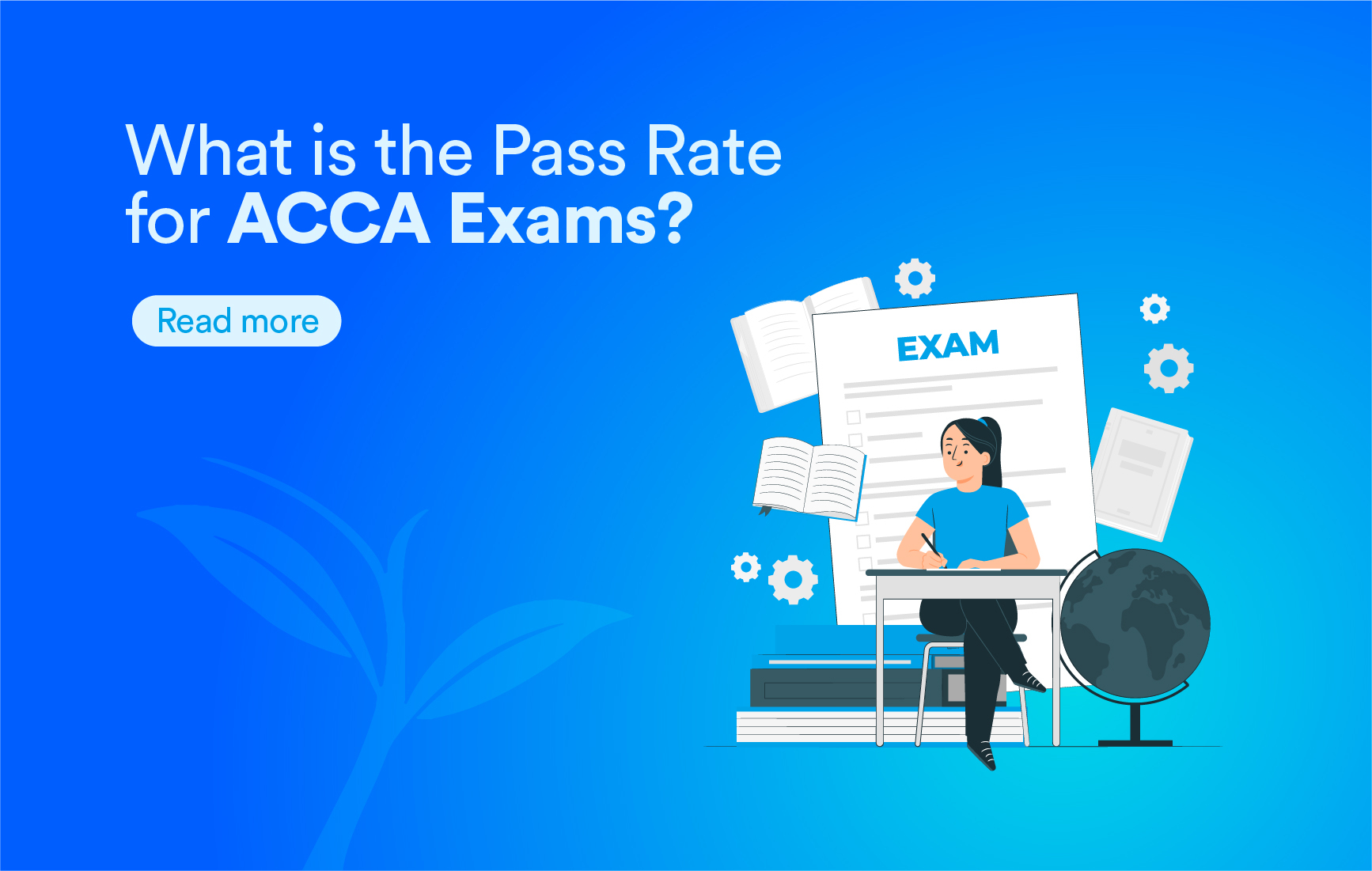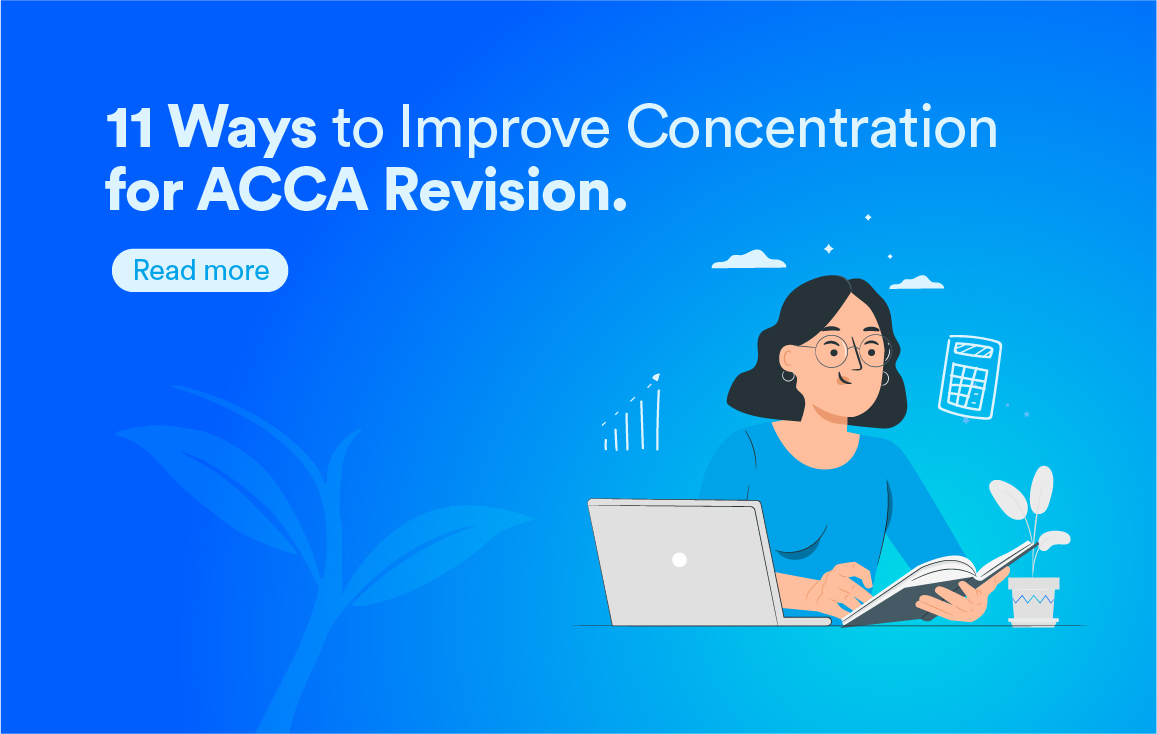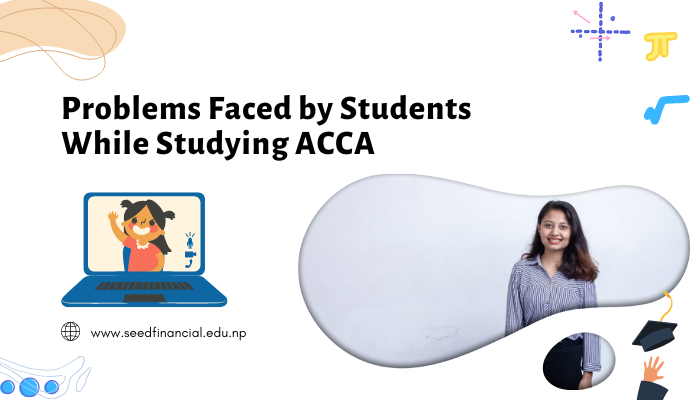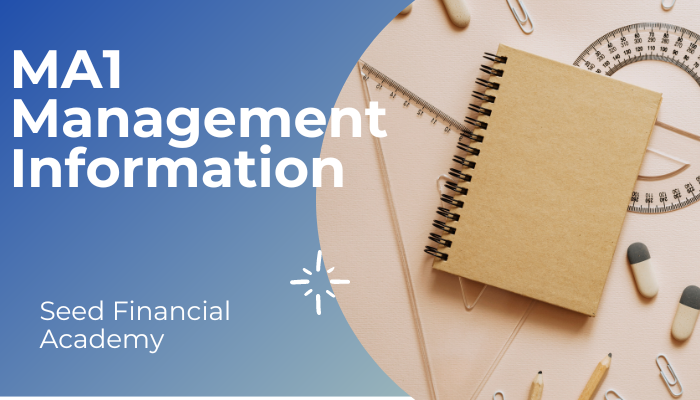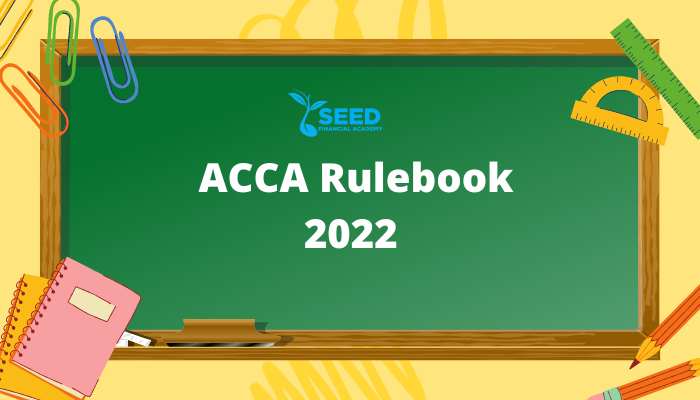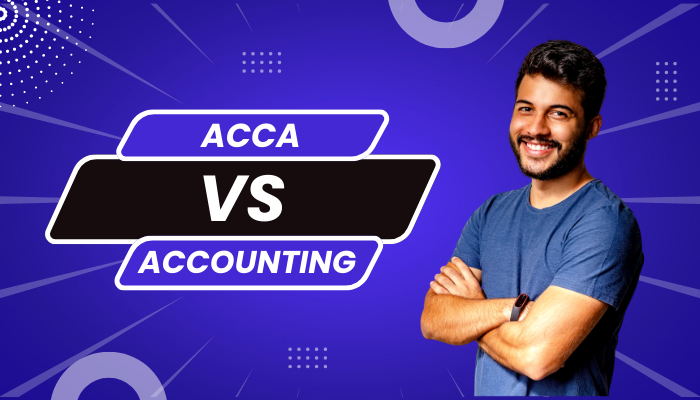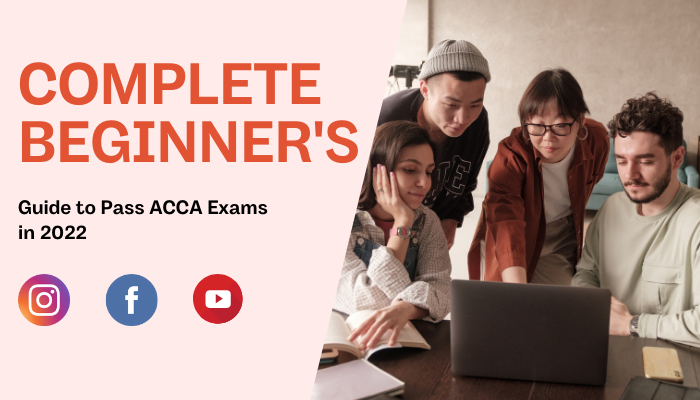Overview on MA1 Management
MA1 Management Information seeks to increase a candidate’s knowledge, comprehension, and capacity to provide fundamental management information to support management in planning and decision-making within an organization. It is intended to provide candidates with the knowledge of fundamental cost data needed for management accounting. The course is created to introduce candidates to fundamental costing principles and procedures and the tools needed to apply them. The chapter begins by introducing business organizations and the managerial accountant’s specialized positions within those companies. To ensure that cost information is appropriately precise basic cost recording procedures are incorporated along the way, along with cost categories, identifying information sources, and coding. An introductory management information presentation employing tools and techniques is also created to give total management assistance.
Candidates should be able to educate themselves about the following through this paper
- Describe the characteristics and objectives of cost and management accounting.
- In a costing system, locate the source documents and properly code the data.
- Sort costs based on their type, behaviour, and purpose.
- Keep track of your expenses, labour, and material costs.
- Utilize spreadsheets in Excel.
Syllabus
The Nature and Purpose of Cost and Management Accounting
- Nature of business organization and the accounting systems
- Nature and purpose of management information
Source Documents and Coding
- Sources of information
- Coding system
Cost Classification and Measurement
- Cost classification and behaviour
- Cost units, cost centres, profit centres, and investment centres
Recording Costs
- Accounting for materials
- Accounting for labour
- Accounting for other expenses
- Accounting for product costs
Spreadsheets
- Spreadsheets overview
- Creating and using spreadsheets
- Presenting and printing spreadsheet data/information
Analyzing Examining Team Reports
An important study resource you might want to consider is the examiners’ reports. Read them to find out how to prevent frequent exam blunders that students make. The guiding articles and video outline the overall strategy for the course and the exam and offer advice on how to perform better on the test.
How do Practice Examinations Aid in Exam Preparation?
Practice Tests are a dynamic study that imitates the structure of all tests offered as on-demand computer-based exams (CBEs). Before you take an exam, you can consider taking a mock test, they will assist you in determining your strengths and shortcomings. Practice tests will provide insight into the experience of taking an actual exam and give you performance feedback. Following the test, you will be given a personalized feedback flowchart outlining your performance on the various syllabus topics.
Practice Exams are an Excellent Way to Aid with the Review.
They are created to the same high standards of quality as real exams and will provide you with the following:
- a fair assessment of your performance
- A customized feedback flowchart to assist you in organizing and focusing your last review activity experience of the exam environment so you are prepared for a real exam.
- Practice exams are instantly accessible online at any time and should be used once you’ve gone over the entire course.
How can I Get my Practice Sets?
You can get your practice sets through my ACCA and purchase them. You can either choose to purchase a single test or a group of three tests.
About the Specimens for the MA1 Computer-based Exam (CBE)
All sample exam questions and solutions are protected by ACCA’s copyright and may only be used by instructors and students to help them prepare for ACCA exams. Without obtaining the express authorization of ACCA, they cannot be published in any format (paper or digital), nor can they be sold for a profit. Additionally, no other institutions or awarding bodies may use them whole or in part as exams.
